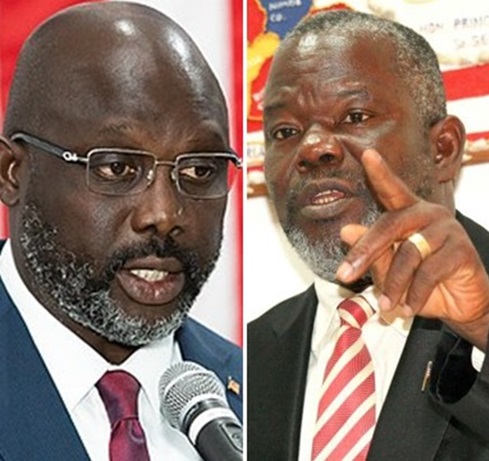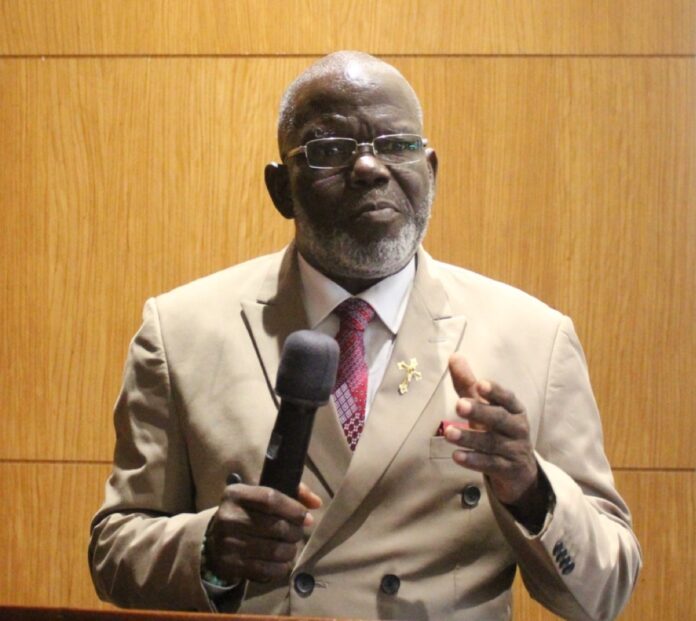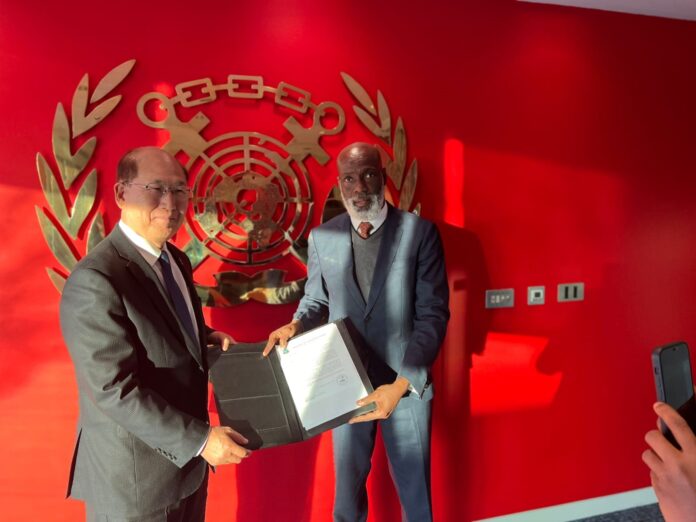By Bishop Kortu K. Brown
A new phenomenon of very deep public concern is developing in the country with politicians who are pastors increasingly utilizing the pulpit to attack and/or counter their opponents. A preaching pulpit is a place where the Gospel of our Lord Jesus Christ is presented and from where the people are warned about their shortcomings, challenges and also call upon to address injustices in society like in the case of the Old Testament prophet, Micah.
Prominent people and/or institutions also have what is referred to as bully pulpits where they address issues of concern. For example, the President has a bully pit from where he’s able to address the people on issues of national concerns. Likewise, a Senator. The person is elected by his/her people to represent them. That means the person also speaks in their behalf.
Of late, there is an increasing political deliberation from politicians in the preaching pulpit. Ordinary people are concerned if the pulpit is not being misrepresented. Some see the pulpit as a sacred space and a place for the advancement of the cause of Christ and will not like to see the gospel pulpit turn into a political platform largely focus on self-serving interests and/or the advancement of political intrigues.
Ordinary people are concerned whether politicians who are considered as pastors or vice versa should use the soulwinning pulpit for such exercises or pursuits i.e., addressing political differences and/or attacking one another. 2 Timothy Chapter 2 verse 15 requires preachers to “Study to show yourself approved unto God, a workman who needs not to be ashamed, rightly dividing the Word of Truth”
Firstly, the preaching pulpit is a very powerful space, a place from where people are called to transformation. The Apostle Paul reminds us in the Book of Romans Chapter 1 verses 16 and 17 that “For I am not ashamed of the Gospel of Christ: for it is the Power of God unto Salvation to everyone who believes; to the Jew first, and also to the Greek. For therein is the Righteousness of God revealed from faith to faith: as it is written, The just shall live by Faith”.
Anyone who stands therefore on the pulpit must see their role as a serious responsibility that cannot be taken for granted or as place where you are speaking to a “crowd” instead of a “church”. There are pastors who speak to crowds but not to a church. There is a big difference. The pulpit preacher is a servant. However, the crowd speaker is “served”. Anyone using the pulpit have to be careful in what they are doing.
Secondly, when pastors mount the pulpit, they say what God wants them to say. Jesus Christ Himself exclaimed in St. Luke Chapter 4 verses 18 and 19 that “The Spirit of the Lord is upon Me, because He has anointed Me to preach the Gospel to the poor; He has sent Me to heal the brokenhearted, to preach Deliverance to the captives, and recovering of sight to the blind, to set at liberty them who are bruised. To preach the acceptable Year of the Lord”.
The pulpit then is not for the attack of your political opponent or competitor. It is to preach, heal, deliver, recover and set hurting people free. Even at that, they, pastors, who don’t hold any political office, when they preach sometimes, even in Bible days, were accused of being political or unfair in their deliberations, at times. What then about politicians using the preaching pulpit to drive their political points. Knowingly or unknowingly, they create a lot of confusion in the society
Thirdly, pastors with political pulpits should largely use their bully pulpits I think to address political issues or opponents rather than using their preaching pulpits in order to avoid confusing ordinary people about the true meaning and purpose of the preaching pulpit. The Bible reminds us that God is not the author of confusion. Politicians are people in public service.
They also need to hear from the preaching pulpit in line with God’s word as they utilize their political pulpits throughout the working week. I don’t think it’s wrong for them to preach if they feel called by God for that purpose.
However, using the pulpit to increasingly attack political opponents is unwarranted and can amount to a mal-positioning of the purpose of the pulpit. That’s not the primary objectives of the pulpit even if the issues border on genuine concerns, etc. A pastor of course cannot use a preaching pulpit for telling stories that amount to half-truths, etc.
Fourthly, when a political person increasingly uses the pulpit to communicate to the people issues of national concerns, some of those issues need to be vetted. They are not unquestionable. That’s why press conferences and related forums are better suited for addressing such political issues. Nobody should hid behind the preaching pulpit to attack their opponents for public service for political reasons especially when you are in public service or have run for public office before.
We believe that issues confronting the country should be addressed by politicians in the political square where sometimes they can directly interact with members of the press for better clarity. We should also consider that no one church can only have one set of supporters or partisans in their midst; then that’s a crowd and not a church.
Fifthly, in the past, thanksgiving and intercessory services as required by Scriptures have been restricted to leaders and the people thanking God for His manifold blessings and asking Him to continue to guide and direct the nation and its people in keeping with the Preamble of the Constitution of Liberia.
According to the Book of 1 Timothy Chapter 1 Verses 1, 2 and 3, the Bible says, “I exhort therefore that, first of all, supplications, prayers, intercessions, and giving of thanks, be made for all men; For kings, and for all who are in authority; that we may lead a quiet and peaceable life in all godliness and honesty. For this is good and acceptable in the Sight of God our Saviour”.
The Preamble of Liberia’s Constitution states in Paragraphs 1 and 2 that “We the People of the Republic of Liberia: Acknowledging our devout gratitude to God for our existence as a Free, Sovereign and Independent State, and relying on His Divine Guidance for our survival as a Nation…;”.
Any such worship service is a spiritual exercise and not a political exercise. It’s a call to the nation to show God gratitude for our existence and to ask His guidance for our survival. That’s why in the past, normally, political remarks or responses will be made at another political setting where issues of concerns are properly address and not necessarily in that sacred service of worship, unity, togetherness, etc.
As a consequence of the above, we call on the President of Liberia and the Senior Senator from Nimba County to “ceasefire” and maintain the sacredness of the preaching pulpit. We urge them to resolve any outstanding political differences or issues through political conciliation, reconciliation and/or mediation, amongst others.
As we march towards the Presidential and Legislative elections in October 2023, all Liberians must keep the peace. Political people and/or leaders attacking one another from the preaching pulpit for political reasons is a new phenomenon in Liberia. We don’t think it’s sustainable.







